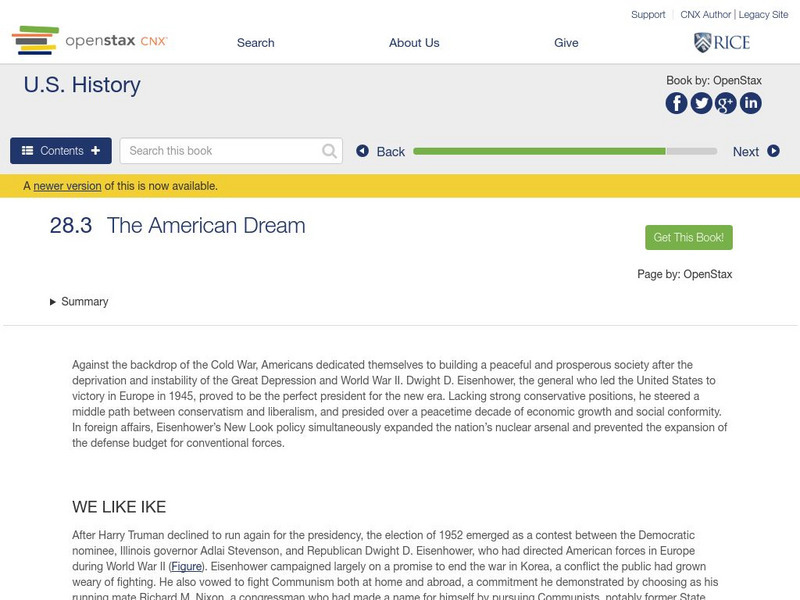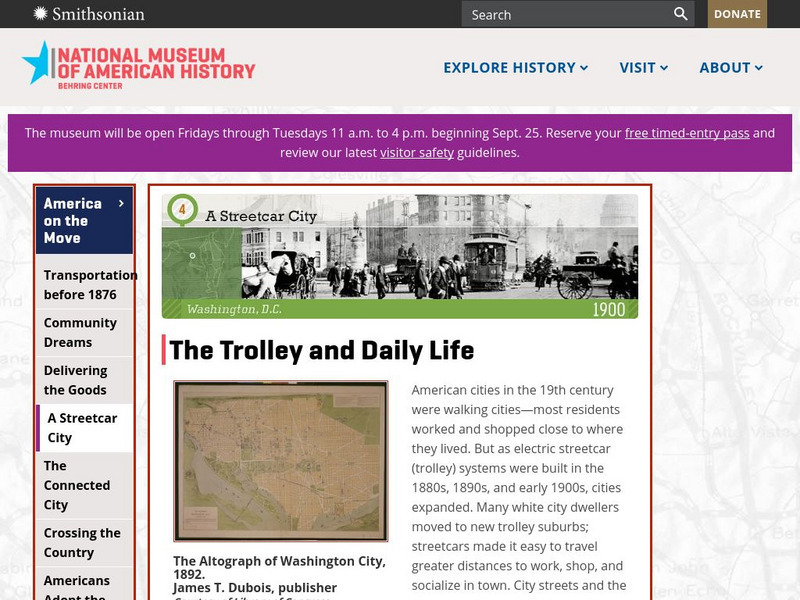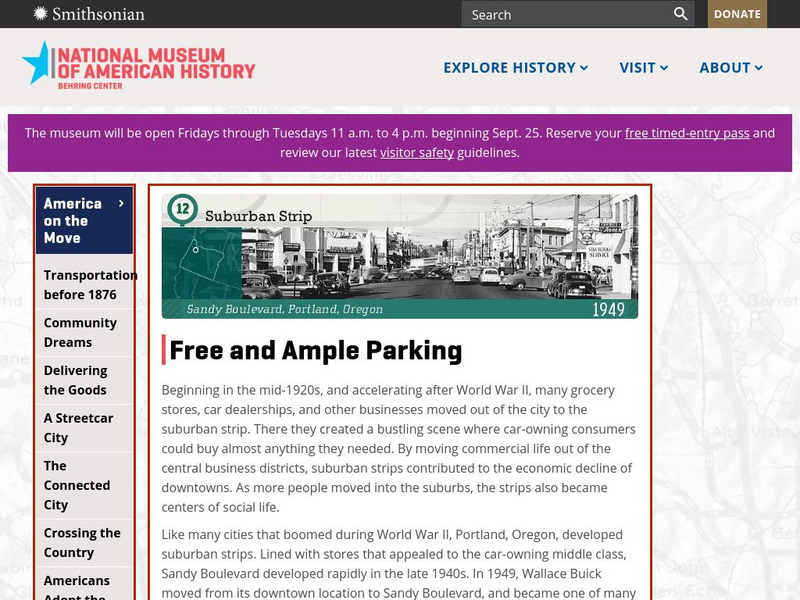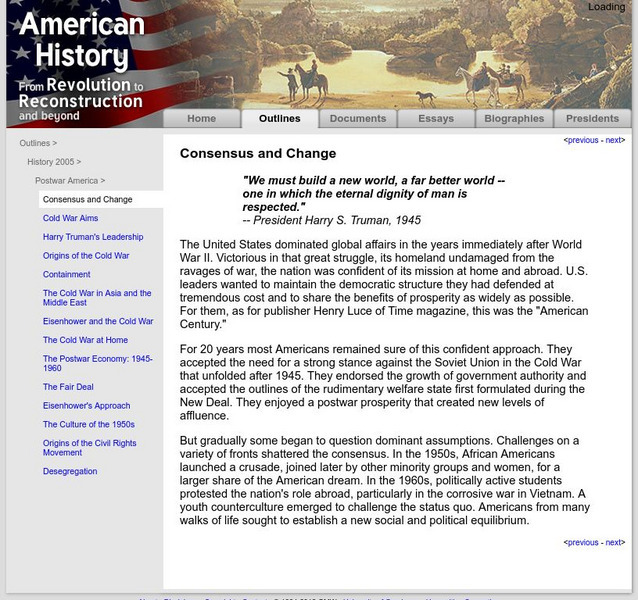National Humanities Center
National Humanities Center: Teacher Serve: Cities and Suburbs: Nature Transformed
Essay on the history of cities and suburbs and how nature has been transformed in the U.S. Author Christopher Sellers guides us with informational text, questions and scholars debate.
Calisphere: University of California Libraries
University of California: Calisphere: California and the Postwar Suburban Home
Images portraying postwar suburbia and showing what life was like after World War II.
OpenStax
Open Stax: Post War Prosperity and Cold War Fears 1945 1960: The American Dream
Looks at the policies of President Dwight D. Eisenhower, both at home and abroad. Also examines changing gender roles in the 1950s, and the impact of suburbanization on America.
C3 Teachers
C3 Teachers: Inquiries: Suburbs
A comprehensive learning module on the suburbanization of America after World War II that includes three supporting questions accompanied by formative tasks and source materials, followed by a summative performance task. Students examine...
Smithsonian Institution
National Museum of American History: A Streetcar City: Washington, d.c. 1900
American cities in the 19th century were walking cities-most residents worked and shopped close to where they lived. But as electric streetcar (trolley) systems were built in the 1880s, 1890s, and early 1900s, cities expanded. Many white...
Smithsonian Institution
National Museum of American History: City and Suburb: Chicago and Park Forest, Illinois 1950s
Exhibition highlights the differences between city and suburbia living. Visit Park Forest, Illinois, a new suburb of Chicago, where every day is moving day. A station wagon and moving boxes sit in front of a new house and the new kids on...
Smithsonian Institution
National Museum of American History: Suburban Strip: Sandy Boulevard, Portland, Oregon 1949
Exhibition focusses on the relationship between transportation and suburbia in the mid 1920s until after World War II when many grocery stores, car dealerships, and other businesses moved out of the city to the suburban strip.
PBS
Pbs Learning Media: Primary Source Set: Postwar Rise of the Suburbs
This collection uses primary sources to explore the postwar growth of the American suburbs.
University of Groningen
American History: Outlines: Consensus and Change
Brief illustration of the changes in U.S. domestic and foreign policy that occurred following WWII.
National Endowment for the Humanities
Neh: Edsit Ement: Building Suburbia: Highways and Housing in Postwar America
In this lesson plan, young scholars will consider "Building Suburbia: Highways and Housing in Postwar America." The plan includes worksheets and other student materials that can be found under the resource tab.
Other
The Suburbanization of America: Patio Culture
This site offers a discussion on middle class suburban life in the 1950's and 1960's which has been dubbed the Patio Culture.
University of California
The History Project: Meaning of Suburbia
As the United States emerged from World War II, suburbs began to spring up with amazing speed. They were advertised as the perfect place to live - a utopia in which the family would flourish. The suburbs, with their promise of an escape...
Khan Academy
Khan Academy: The Growth of Suburbia
The GI Bill made it possible for World War II veterans to finance the purchase of a house. This, combined with mass production of houses, led to the growth of suburban communities, including three Levittown suburbs.
Khan Academy
Khan Academy: The Dark Side of Suburbia
The suburbs were not idyllic for some. Women found the conformity of them restrictive and African Americans were usually barred from living in them.
Khan Academy
Khan Academy: Us History: 1945 1980: The Dark Side of Suburbia
Some background information that sheds light on how suburbia wasn't paradise for everyone especially women and African Americans in the 1950s and 60s.
Digital Public Library of America
Dpla: Postwar Rise of the Suburbs
Primary source documents include photographs, documents, cartoons, and advertisements that help to paint a picture of this unique time and place in American history.
Independence Hall Association
U.s. History: Suburban Growth
Find out how many veterans returning from World War II were able to realize the American Dream of home ownership, and see how this resulted in the growth of suburban areas across the nation.














